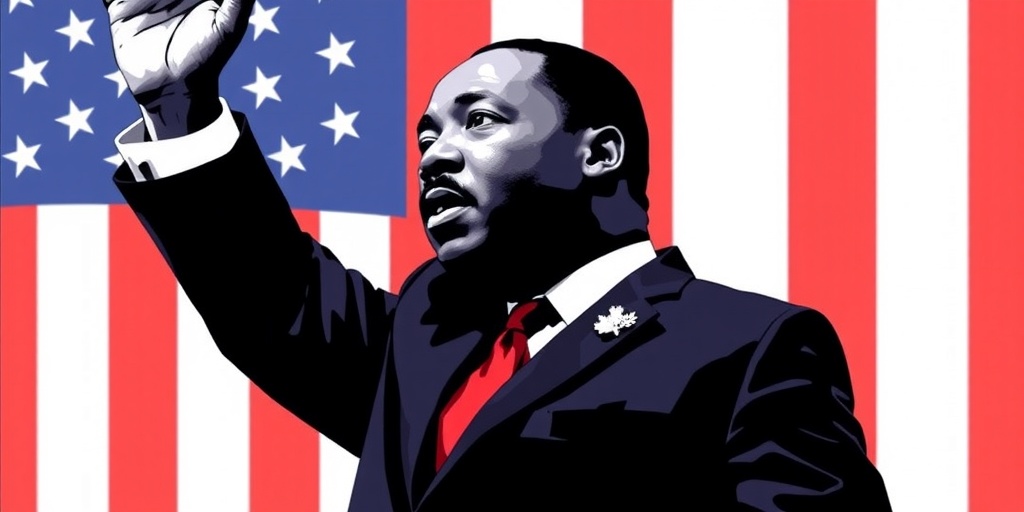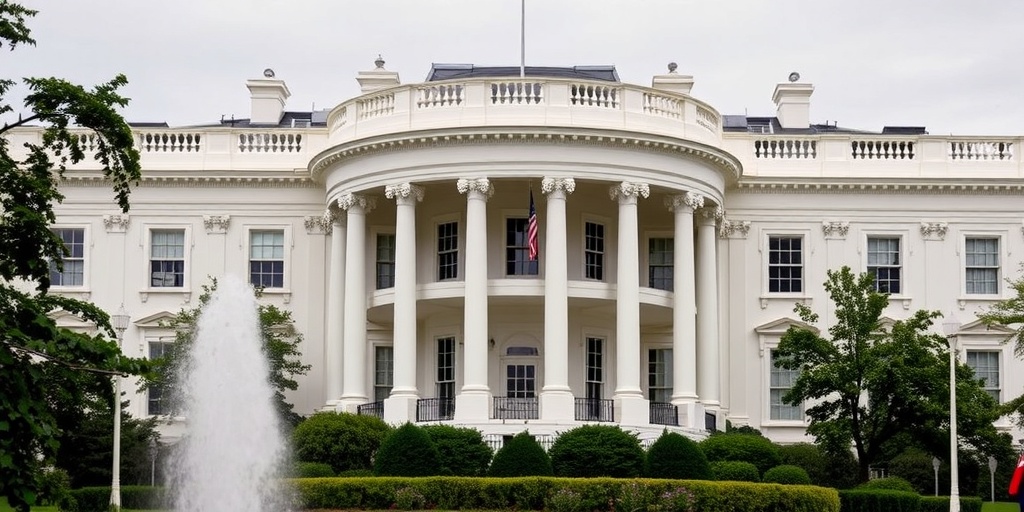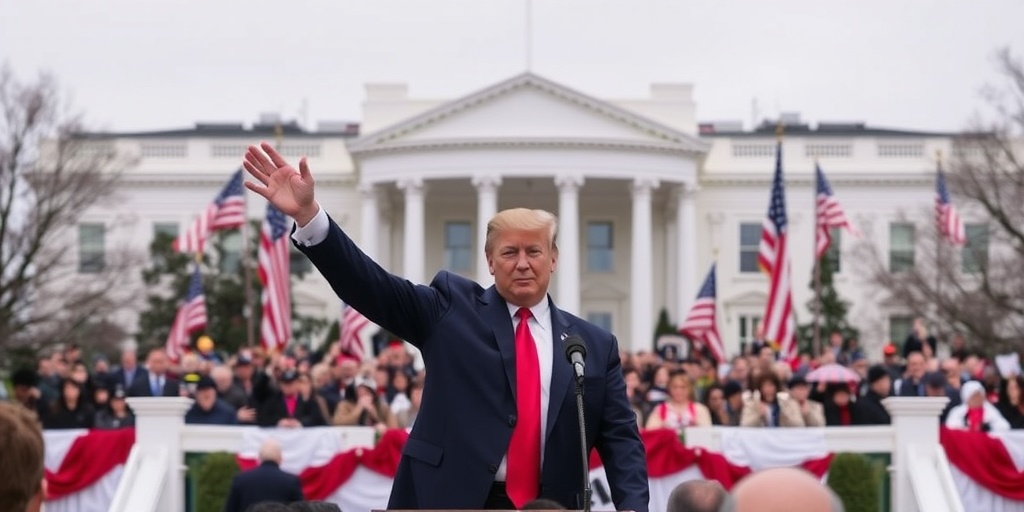Now Reading: Lessons from Trump’s Comeback on Martin Luther King Day
-
01
Lessons from Trump’s Comeback on Martin Luther King Day
Lessons from Trump’s Comeback on Martin Luther King Day

On Monday, the United States will commemorate two significant events: the birth of the Rev. Dr. Martin Luther King Jr.—a figure synonymous with the struggle for civil rights, democracy, and racial justice—and the inauguration of President-elect Donald J. Trump. The overlap of Martin Luther King Day and Trump’s inauguration marks a poignant moment in American history, evoking mixed emotions across the nation.
For some, the day symbolizes a unique celebration. Trump’s unexpected resurgence in politics has been fueled by notable support from voters of color, highlighting a shift in political dynamics. However, many others are unsettled by this coincidence. They perceive Trump’s political rise, rooted in nativism and a rejection of a more inclusive society, as contrary to the principles Dr. King advocated for throughout his life.
This unusual pairing is reminiscent of Bill Clinton’s second inauguration in 1997, which was the only other instance when King Day coincided with an inaugural ceremony. Political analysts view this convergence as a critical juncture for a nation wrestling with its historical commitment to equality in the face of persistent racial and ethnic divisions.
The Rev. Dr. William J. Barber II, who will lead M.L.K. Day observances at Ebenezer Baptist Church in Atlanta, emphasized this point, suggesting that the day could serve as a juxtaposition of ideas—a chance to reflect on Dr. King’s vision in light of today’s political climate. The theme of reconciliation and reflection is particularly salient this year, as the historical alliance between Black leadership and the Democratic Party appears fragile. As the nation has become increasingly diverse since Dr. King’s lifetime, many Black voters are grappling with what leadership should represent amid the challenges faced during the Trump era.
The recent electoral cycle illustrated this dynamic shift. The opportunity to elect a Black woman to the presidency passed without success, prompting questions among Black voters regarding the efficacy and direction of their leadership.
Despite the political tensions, observances on Martin Luther King Day will unfold as they traditionally do: through church services and community service projects across the country. This year’s observance stands in stark contrast to the violent upheavals that accompanied Trump’s previous inauguration four years ago.
Since its establishment in 1986, Martin Luther King Day has often been leveraged by political parties. For instance, the late President Ronald Reagan famously quoted Dr. King’s “I Have a Dream” speech to argue against affirmative action policies—a sentiment that aligns with Trump’s political stance. Reagan’s use of King’s words to support a colorblind society illustrates how political figures have historically attempted to appropriate King’s legacy for their own agendas.
The son of Dr. King, Martin Luther King III, has voiced concerns over his father’s message being diluted and repurposed by various political factions. He believes that the emphasis on judging individuals by their character, rather than race, fails to encompass the more radical economic justice ideals that his father championed.
The political landscape today sees Trump enjoy substantial support among White voters, but also make gains with voters of color, particularly Latino and some Black men. This demographic shift suggests that new forms of leadership are emerging within these communities. Representative Wesley Hunt, a Black Republican from Texas, articulated that Dr. King’s message resonates profoundly with him, particularly the call to be judged by character rather than skin color.
However, the focus should also be on providing economic opportunities and safer communities for these communities, or risk losing their support. Questions linger about Trump’s past rhetoric, which has drawn accusations of racial insensitivity. Despite this, some, like Hunt, argue that personal interactions and gestures of kindness from Trump supersede past controversies.
As the Democratic Party grapples with its own challenges, Leah Wright Rigueur, an academic specializing in Black Republicanism, underscored that the current political environment may represent the weakest position for the Democratic coalition since the early 1980s. The coalition’s struggles have led many voters to reassess their affiliations and the effectiveness of their representation, especially after the Obama presidency.
Dr. King believed deeply in the power of political institutions and their ability to elevate democracy for all citizens, a sentiment echoed in discussions about the need for inclusion and equity in contemporary politics. The nation’s longstanding racial and economic disparities underline the urgent need for structural changes.
In closing, both present-day civil rights leaders and the legacy of Dr. King call the nation to task. They emphasize that historical struggles for equality must continue, especially in a time when extremism threatens to undermine the progress achieved. In Dr. Barber’s words, extremism will only incite a rise in justice-seeking individuals prepared to confront inequalities head-on, embodying the resilience and spirit that defined Dr. King’s mission. This Martin Luther King Day serves as a reminder that while the political landscape may shift, the quest for justice remains paramount.
Stay Informed With the Latest & Most Important News
Previous Post
Next Post
-
 01New technology breakthrough has everyone talking right now
01New technology breakthrough has everyone talking right now -
 02Unbelievable life hack everyone needs to try today
02Unbelievable life hack everyone needs to try today -
 03Fascinating discovery found buried deep beneath the ocean
03Fascinating discovery found buried deep beneath the ocean -
 04Man invents genius device that solves everyday problems
04Man invents genius device that solves everyday problems -
 05Shocking discovery that changes what we know forever
05Shocking discovery that changes what we know forever -
 06Internet goes wild over celebrity’s unexpected fashion choice
06Internet goes wild over celebrity’s unexpected fashion choice -
 07Rare animal sighting stuns scientists and wildlife lovers
07Rare animal sighting stuns scientists and wildlife lovers




















